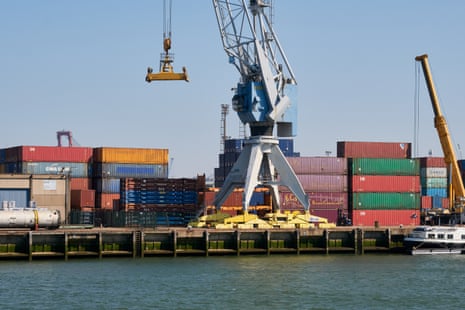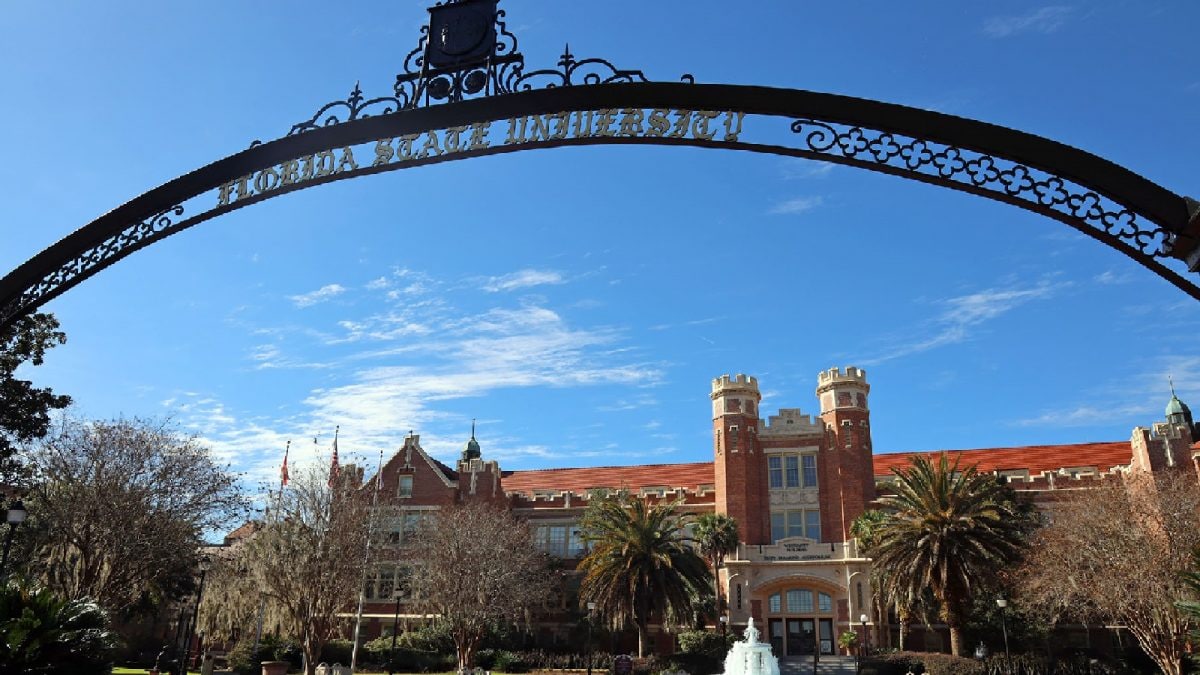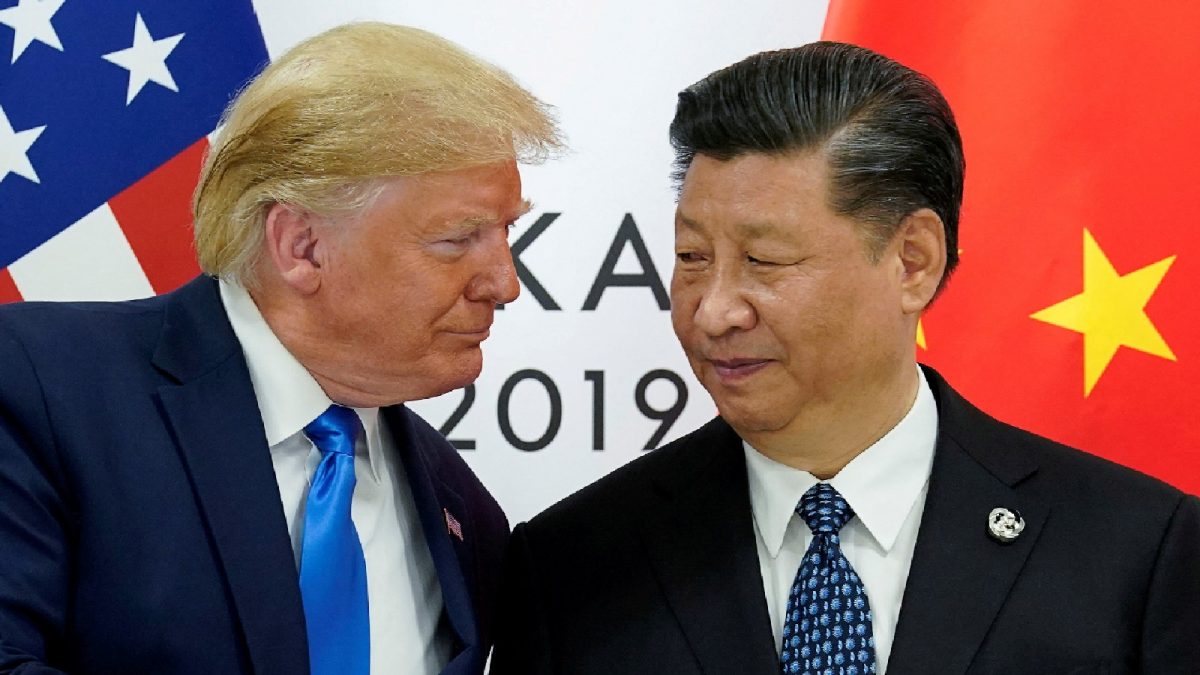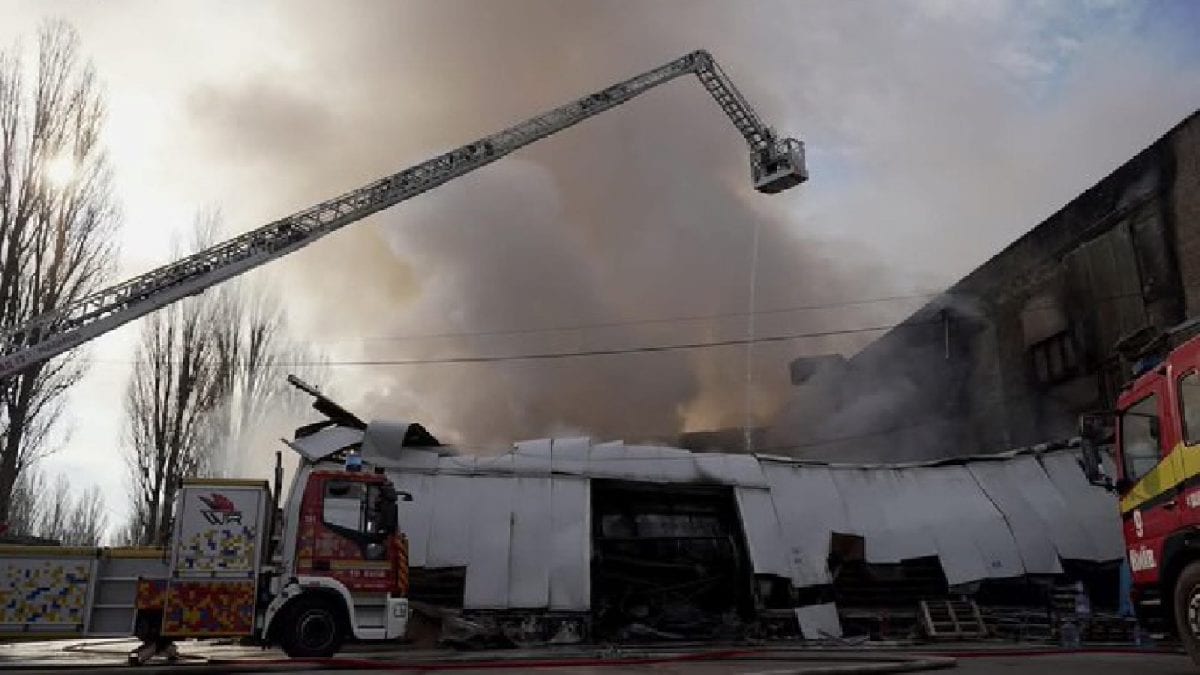Morning opening: Tariffs? Doing very well, thank you.

Jakub Krupa
US president Donald Trump continues to rewrite the rules of global trade, as his sweeping tariffs take effect.

Rates on imports to the United States from dozens of economies rose further from 12.01am (0401 GMT) on Wednesday, with tariffs imposed on Chinese products since Trump returned to the White House reaching a staggering 104%. The new tariffs include rates of 20% on the European Union, 26% on India and 49% on Cambodia.
Overnight, he appeared to show no signs of doubt or remorse, insisting “the tariffs, you’ve been hearing about tariffs – we’re taking in almost $2bn a day in tariffs, … and we’re doing very well.”
Using rather fruity language, he went on to tell his audience:
I think we’re going to do much better and just remember the numbers when you get up to $2bn a day, $2bn a day, they say sir, it can’t be that can it, I said, yeah, it can. It’s the biggest -- the biggest transaction ever made.
This is bigger than any deal you guys, some of you work for companies. Your companies are peanuts, I don’t care how big they are compared. This is the largest transaction in the history of our country.
And don’t let some of these politicians go around saying, you know, because I’m telling you these countries are calling us up kissing my ass. They are -- they are dying to make a deal.
If that wasn’t enough, Trump also signalled more “major” tariffs to be announced “very shortly”, specifically targeting pharmaceuticals.
The US president made it clear in the past that he had a particular gripe on this with Ireland, so let’s see if it’s a fortunate or unfortunate coincidence that Ireland’s deputy prime minister, foreign and trade minister Simon Harris is meeting with the US secretary of commerce Howard Lutnick today.
This side of the Atlantic, we will see the EU finalise the first part of its response, with retaliatory tariffs against Trump’s original measures on steel and aluminium.
EU member states will vote on the final list on Wednesday, which targets €21bn of goods, down from €26bn originally foreseen, after talks with the EU’s 27 member states and many industry bodies. The list of potential targets facing mostly 25% retaliatory tariffs now ranges from almonds to yachts, via diamonds and dental floss, soya beans and steel parts. But bourbon and wine have been dropped.
It promises to be a yet another turbulent day for Europe, and if you want to keep an eye on the markets, you can also follow our business live blog in parallel here:
Elsewhere, I will be keeping an eye on:
Closing stages in German coalition talks, expected to be wrapped up today – potentially as early as midday – after late night talks and an early restart this morning;
Nato secretary general Mark Rutte’s visit to Japan where he is due to speak alongside the country’s prime minister Shigeru Ishiba;
French president Emmanuel Macron’s talks with embattled Serbian president Aleksander Vučić who continues to face mass protests led by student movements over alleged corruption;
Ukrainian prime minister Denys Shmyhal’s visit to Brussels for a meeting of the EU-Ukraine Association Council and talks with leading bloc leaders;
and Italian prime minister Giorgia Meloni welcoming the British royals as they continue their formal visit to Italy.
It’s Wednesday, 9 April 2025, it’s Jakub Krupa here, and this is Europe Live.
Good morning.
Key events Show key events only Please turn on JavaScript to use this feature
AfD gains in polls as Germany faces dire economic news and political limbo - snap analysis

Deborah Cole
We’ve seen the AfD, which came in second in February’s general election, gaining in the polls in recent weeks as Germany has faced a deluge of dire economic news while in political limbo.
The first-place CDU/CSU of Friedrich Merz, the prospective new chancellor, has been racing to cobble together a coalition deal with the Social Democrats (SPD) and they are believed to be in the final stretch, with a pact likely as soon as this afternoon.

But a sense that the EU’s top economy is adrift while facing the catastrophic impact of the Trump tariffs for a major exporting nation has hurt confidence in the new government even before it has taken office.
Merz has largely kept to his pledge to avoid the spotlight while the negotiations were going on but this left a vacuum often filled by the AfD, whose top leadership has been railing against the mainstream parties as incapable of facing up to Germany’s deep-seated structural problems.
The conservative leader has also faced criticism within his own camp of backing away from the fiscal discipline and hard line on immigration he promised during the campaign in order to win the support of the SPD -- leaving more flanks open for AfD attacks.
A poll last week showed that Merz had only 25% support among German voters – about 10 points lower than when he won the election.
Far-right Alternative für Deutschland tops federal poll in Germany for first time
It has been long coming, and here it is – of all days, today.
Just as we wait for the coalition talks between the conservatives from CDU/CSU and the Social Democrats, SPD, to finally conclude some 40 days after the last federal election, the far-right Alternative für Deutschland has come top in the latest Ipsos poll on German voting intentions, at 25%, one point ahead of the election winners, CDU/CSU at 24%.

This is the first time AfD has topped a federal election poll in Germany in history, putting further pressure on the Brandmauer (firewall) arrangement seeking to marginalise the party in German politics.
AfD’s co-leader Alice Weidel immediately reacted to the news, saying in a social media post that:
Citizens want political change – not a “business as usual” coalition between the CDU/CSU and SPD!
The Social Democrats are third with 15%, with the Greens and the Left both on 11%. The Sahra Wagenknecht Alliance is fifth at 5%, and the liberals from the Free Democratic Party at 4%.
Romania 'has not received any official information' on US plans to withdraw troops, defence ministry says
If you followed the blog yesterday, you know I focused a lot on growing concerns and speculations about up to 10,000 US troops being potentially withdrawn from central and eastern Europe as part of a broader review of US military presence in Europe.

Romania, which would be one of the countries most affected, just got back to me on the speculations, with the country’s defence ministry insisting it “has not received any official information in this regard from the US.”
It said there are approx. 1,700 US troops in the country at the moment, and stressed it’s committed €2.5bn in the modernisation and expansion of the 57th airbase in Mihail Kogălniceanu, used by the Americans.
“Romania has been one of the first allied countries to raise its defence budget above 2% of GDP, constantly exceeding the commitment to invest a minimum of 20% in modern technology, which demonstrates our firm position to undertake increasingly important security responsibilities,” it added.
Morning opening: Tariffs? Doing very well, thank you.

Jakub Krupa
US president Donald Trump continues to rewrite the rules of global trade, as his sweeping tariffs take effect.

Rates on imports to the United States from dozens of economies rose further from 12.01am (0401 GMT) on Wednesday, with tariffs imposed on Chinese products since Trump returned to the White House reaching a staggering 104%. The new tariffs include rates of 20% on the European Union, 26% on India and 49% on Cambodia.
Overnight, he appeared to show no signs of doubt or remorse, insisting “the tariffs, you’ve been hearing about tariffs – we’re taking in almost $2bn a day in tariffs, … and we’re doing very well.”
Using rather fruity language, he went on to tell his audience:
I think we’re going to do much better and just remember the numbers when you get up to $2bn a day, $2bn a day, they say sir, it can’t be that can it, I said, yeah, it can. It’s the biggest -- the biggest transaction ever made.
This is bigger than any deal you guys, some of you work for companies. Your companies are peanuts, I don’t care how big they are compared. This is the largest transaction in the history of our country.
And don’t let some of these politicians go around saying, you know, because I’m telling you these countries are calling us up kissing my ass. They are -- they are dying to make a deal.
If that wasn’t enough, Trump also signalled more “major” tariffs to be announced “very shortly”, specifically targeting pharmaceuticals.
The US president made it clear in the past that he had a particular gripe on this with Ireland, so let’s see if it’s a fortunate or unfortunate coincidence that Ireland’s deputy prime minister, foreign and trade minister Simon Harris is meeting with the US secretary of commerce Howard Lutnick today.
This side of the Atlantic, we will see the EU finalise the first part of its response, with retaliatory tariffs against Trump’s original measures on steel and aluminium.
EU member states will vote on the final list on Wednesday, which targets €21bn of goods, down from €26bn originally foreseen, after talks with the EU’s 27 member states and many industry bodies. The list of potential targets facing mostly 25% retaliatory tariffs now ranges from almonds to yachts, via diamonds and dental floss, soya beans and steel parts. But bourbon and wine have been dropped.
It promises to be a yet another turbulent day for Europe, and if you want to keep an eye on the markets, you can also follow our business live blog in parallel here:
Elsewhere, I will be keeping an eye on:
Closing stages in German coalition talks, expected to be wrapped up today – potentially as early as midday – after late night talks and an early restart this morning;
Nato secretary general Mark Rutte’s visit to Japan where he is due to speak alongside the country’s prime minister Shigeru Ishiba;
French president Emmanuel Macron’s talks with embattled Serbian president Aleksander Vučić who continues to face mass protests led by student movements over alleged corruption;
Ukrainian prime minister Denys Shmyhal’s visit to Brussels for a meeting of the EU-Ukraine Association Council and talks with leading bloc leaders;
and Italian prime minister Giorgia Meloni welcoming the British royals as they continue their formal visit to Italy.
It’s Wednesday, 9 April 2025, it’s Jakub Krupa here, and this is Europe Live.
Good morning.

 1 week ago
1 week ago















